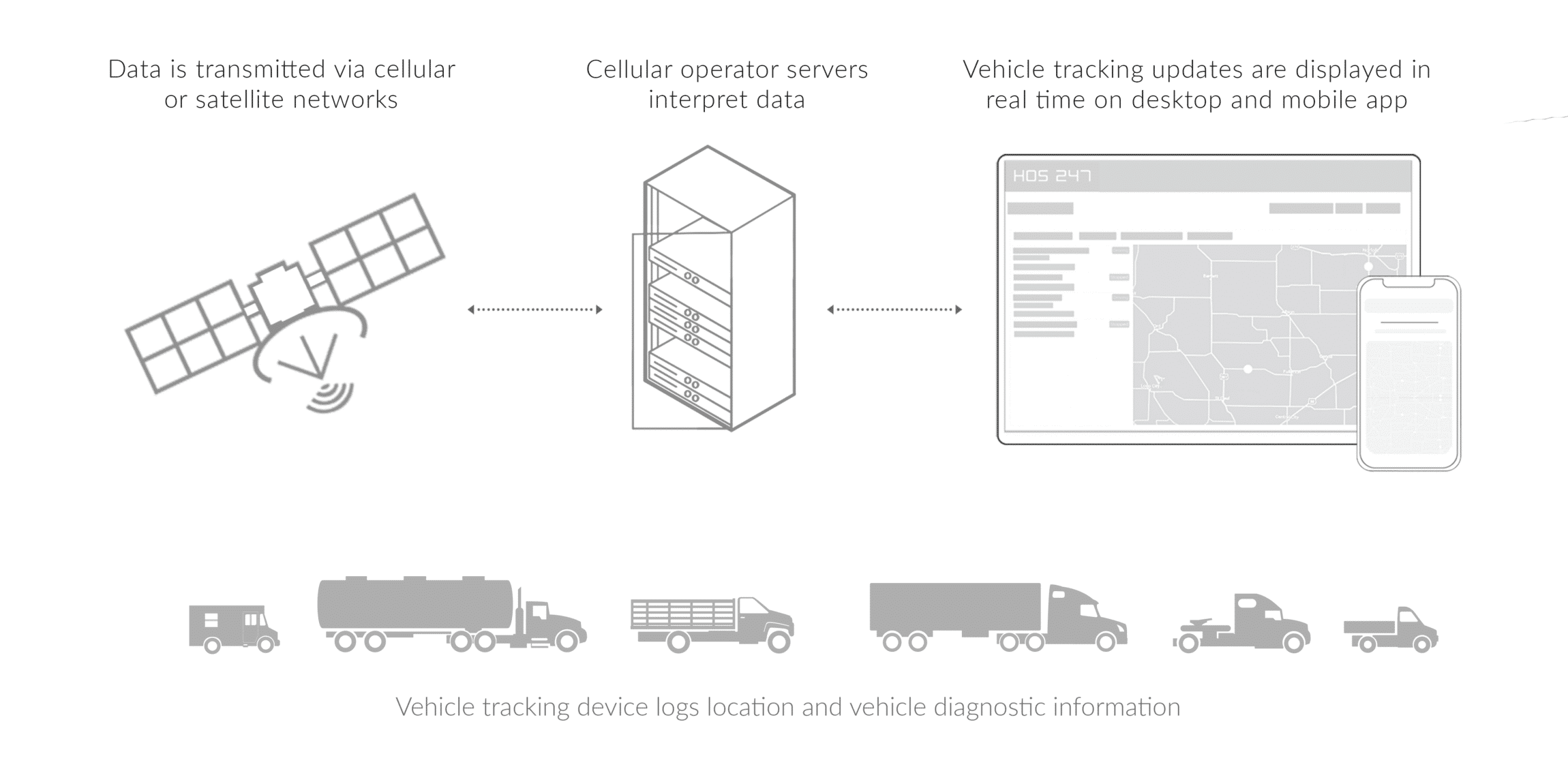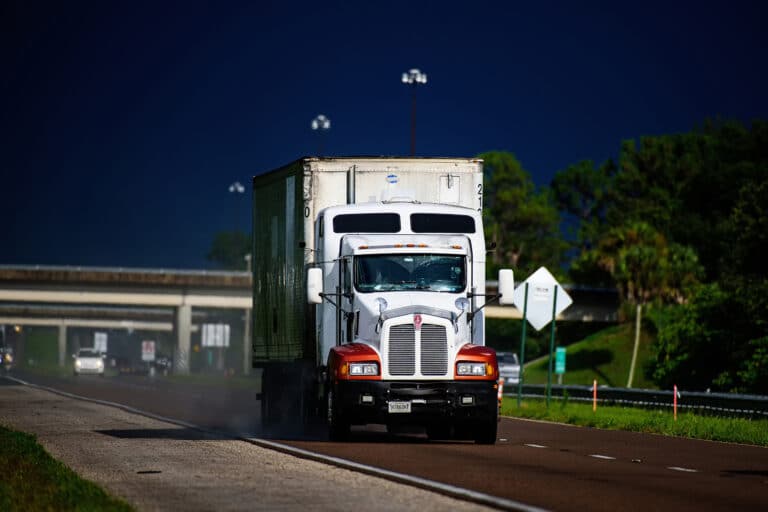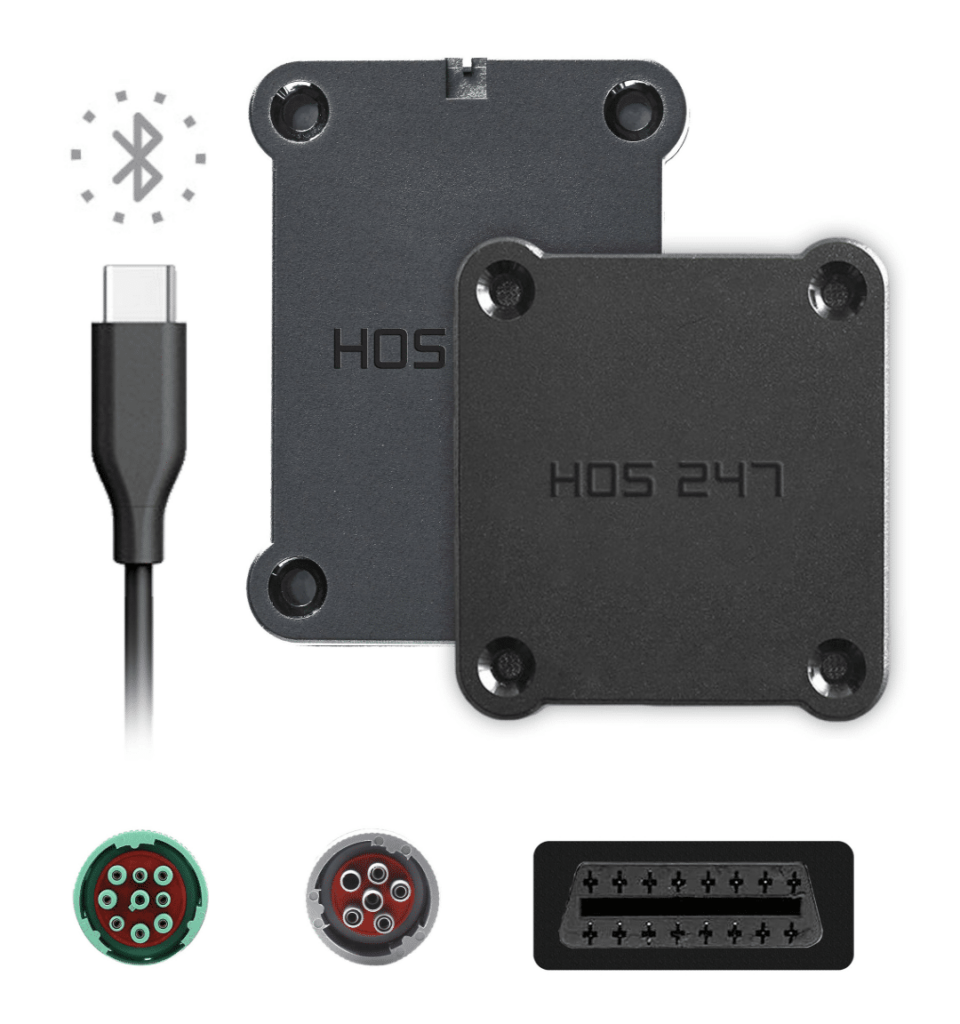Truckers who integrate all in one ELD fleet management systems to their businesses can significantly improve their operations by achieving compliance with the elog law while optimizing essential workflows. These systems streamline processes such as route planning, dispatch, vehicle maintenance, and driver management, helping office staff cut operational costs and reduce downtime.
By automating drivers’ work routines and allowing motor carriers to avoid HOS-related fines and high CSA scores, integrated ELDs boost performance and productivity. With GPS tracking, fleet managers can monitor operations in real time, gaining a bird’s-eye view and making timely decisions. These digital platforms collect and analyze vehicles’ key metrics, providing supervisors with new, more efficient ways of optimizing fleet performance.
Meanwhile, the automation of tasks related to complex tax calculations reduces the risk of human error, which may also lead to delays and financial losses. In this article, we will examine the essential tools of HOS247 all in one ELD fleet management, explaining how your business can benefit from them, and discuss the legal aspects of the ELD mandate to help you avoid HOS violations.
Do you have any questions? Talk to ELD Advisor: 650-405-3372 or Request Callback
ELD Mandate and Fleet Management
Let’s start with HOS compliance, one of the main concerns for truckers. According to the FMCSA, most commercial drivers in the US are required to use an electronic logging device to record their hours of service. HOS violations may lead to thousands of dollars in fines and high CSA scores, which might result in higher insurance premiums and damage the company’s reputation.
Since elogs are indispensable for fleets that conduct interstate commerce, motor carriers may consider getting an all in one ELD fleet management system, which pairs the logbook with features like GPS, as it’s more practical and cost-effective to purchase a solution that already has all the necessary tools than buying devices separately. An efficient management platform of this type will significantly improve carriers’ operations, helping them comply with regulations, reduce costs, and boost overall productivity. If this is what you are looking for, we have a reliable solution to offer.
Benefits of HOS247 All in One ELD Fleet Management
HOS247 is a leading ELD and fleet management platform that meets all FMCSA requirements. By managing electronic HOS logging, electronic driver vehicle inspection reports, and log auditing, our system allows businesses to prevent noncompliance issues that might lead to expensive fines and delayed deliveries. The HOS247 customer-centered approach is what distinguishes us from other providers of electronic logging devices. As we can see from reviews on Apple App Store and Google Play, HOS247 has won the trust of American truckers thanks to its reliable service backed by excellent technical support and flexible customer policies. What are the traits that make our solution so efficient?
- Advanced technology. HOS247 all in one ELD fleet management incorporates advanced technology, featuring 4G LTE connectivity that provides interrupted real-time tracking, ensuring fleet safety, promoting more efficient fleet management, and enabling transparent communication between drivers and dispatchers.
- Straightforward installation. Despite the technological complexity that makes HOS247 ELD fleet management platform so efficient, the system does not require special installation and can be set up by anyone in less than ten minutes.
- Accessible online portal. Fleet managers can access valuable vehicle data, such as idling, maintenance issues, and vehicle diagnostics, through the user-friendly HOS247 web-based portal. With this information at hand, supervisors can optimize processes to reduce administrative burden.
- Intuitive interface. Our ELD fleet management software is easy to navigate and requires no training. Drivers can easily manage logs and quickly access RODS information during road inspections, avoiding stressful situations and downtime. Fleet managers can monitor operations from the office and provide support whenever needed.
- Dependable customer support. Top-rated by our customers, the HOS247 solution provides a dependable service backed up by effective technical support. Available Monday through Sunday, our knowledgeable tech experts will leave no customer unattended thanks to our callback policy. If the call drops, our staff will promptly call you back.
- Features to boost fleet productivity. The HOS247 all in one ELD fleet management is enhanced with tools that improve route planning and driver management, cut fuel costs, prevent expensive vehicle repairs, and reduce downtown. These features include real-time GPS tracking, idle reporting, fleet maintenance reminders, vehicle diagnostics, and IFTA mileage calculations. In the next section, we will discuss the advantages of these features within ELD fleet management.
Advantages of Using a Fleet Management System
ELD-based fleet management systems track and manage data collected from commercial vehicles. Their main purpose is to provide real-time visibility into fleet performance and compliance, helping motor carriers acquire more control over drivers and vehicles. Let’s see what advantages this provides for trucking businesses.
- Reduced fuel and maintenance costs. By utilizing predictive analytics and accurate reporting, the all in one ELD fleet management platform reduces costs associated with speeding and idling. Vehicle diagnostics help avoid high-priced repairs by timely notifying fleet managers about malfunctions that occur in the vehicle system. Additionally, vehicle maintenance reminders help prevent breakages and maximize carrier’s investments by prolonging trucks’ lifespan.
- Improved customer service. The streamlined communication of an all in one ELD fleet management platform, enhanced with real-time tracking, allows dispatchers to plan routes more effectively based on the accurate vehicle’s locations and drivers’ available driving hours, resulting in faster deliveries. As the system automatically records the arrival and departure times, the operations become more efficient and fleet managers can provide customers with accurate information.
- Increased productivity. Automation of tasks results in significant time savings and increased fleet efficiency. Complex IFTA calculations done by the system eliminate the risk of human error, which in turn reduces the chances of being audited. Valuable vehicle data, collected and analyzed by the system, allows fleet managers to minimize risks and identify areas of opportunity to boost productivity, reducing driver frustration while on the road and increasing employee satisfaction.
- Ensured fleet and driver safety. Real-time tracking provides full visibility of the fleet and notifies supervisors via the fleet manager portal if the vehicle is driven to an unauthorized location, allowing recovery of stolen vehicles and assets. The integrated electronic logging device monitors drivers HOS according to federal regulations, which prevents road accidents caused by fatigue.

ELD-Based Fleet Management Systems Must Support HOS Rules and Exceptions
To create safe working conditions for truck drivers and improve road security for everyone, the FMCSA has established norms to regulate time limits for work, driving hours, and breaks. These regulations must be programmed into the electronic logbook’s software to keep truckers compliant. The three main HOS rules are built around these regulations:
- The 14-hour rule. Operators cannot drive for more than 14 consecutive hours after coming on duty without taking 10 consecutive hours off-duty first.
- The 11-hour rule. Drivers can operate the vehicle for a maximum of 11 hours after 10 consecutive hours off duty within a 14-hour timeline.
- The 30-minute rest break rule. Operators cannot continue to drive after 8 hours have passed since their last off-duty period of 30 minutes, but they are allowed to work on non-driving tasks after 8 hours without taking a break.

The Federal Motor Carrier Safety Administration provides several exceptions to the HOS rules that allow commercial motor vehicle operators to extend their driving and on-duty time beyond the standard limits in certain circumstances. Some of the common exceptions to the HOS rules include:
- Adverse driving conditions. When unforeseen circumstances like bad weather or road closures make it impossible for a driver to complete a trip within the HOS limits, they may extend their driving and on-duty time by up to 2 additional hours to reach a safe parking location.
- Emergencies. The FMCSA defines an emergency as any situation that directly threatens human health, safety, or property and requires immediate action. Under this exception, drivers can extend their driving and on-duty time beyond the standard HOS limits to respond to emergency situations.
Additionally, though HOS rules apply to most commercial operators, short-haul drivers are exempt from these hours of service regulations because they generally operate within a small geographic area and return to their work reporting location at the end of each day. Thus, the FMCSA has determined that they are less likely to experience fatigue-related driving issues than long-haul drivers.
HOS247 is an FMCSA-approved provider of ELD and fleet management systems with a full focus on compliance and reliability. Our solution supports all HOS rules and exceptions, helping motor carriers improve their CSA scores and avoid penalties related to hours of service violations.

As an expert in B2B and B2C sales, I’ve dedicated myself to perfecting sales processes and client retention strategies in the logistics and trucking industry. I have significantly contributed to the expansion of the ELD service, catering to retail and wholesale clients in need of HOS247 ELD solutions. My unwavering commitment to implementing state-of-the-art sales techniques and technologies ensures the continuous growth and success of businesses I work with.












It’s understandable why truckers choose low-priced electronic logging devices. However, cheap ELD solutions may end up being more expensive for a variety of reasons. For example, low-quality hardware can be unreliable and may break easily, leading to downtime and financial

HOS247 HOS247 Rating HOS247 HOS247 Rating HOS247 is a top ELD provider in the trucking industry. We offer a heavy vehicle log book for transportation professionals that takes care of compliance and optimizes fleet operations. Our customers range

The ability to monitor vehicles in real time is a major benefit to fleet managers. When able to view location data, speed, a driver’s idle time and more, fleet managers can make real-time decisions that benefit the business as a
